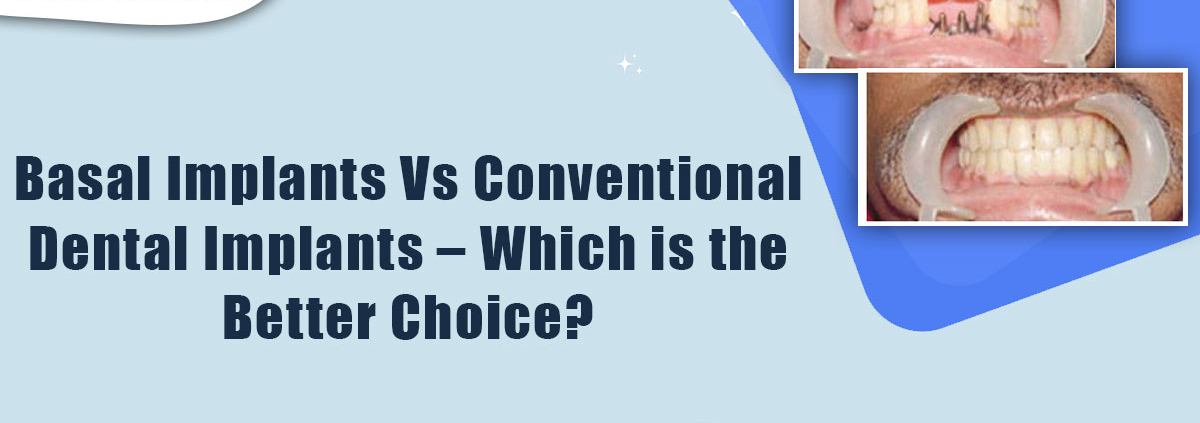Basal Implants Vs Conventional Dental Implants – Which is the Better Choice?
In the past few years, a new concept of Basal Implants in dental implantology is gaining popularity. The primary reason for getting attention is that this concept advocates immediate loading of implants i.e. immediate teeth placement after dental implants thereby eliminating any waiting time.
What is a Basal implant?
Basal Implant is a specially designed dental implant indicated to be placed in the basal bone portion of jaw bone (basal bone is the portion of jaw bone below the area of tooth sockets). Basal bone can be found even in extreme cases of bone restoration.



How are Basal Implants different from Conventional Implants?
- Conventional implants have a healing time of 3-6 months before the actual teeth placement while basal are immediate loading implants
- Basal implants are placed in basal bone which is not the case with conventional implants.
- Conventional implants derive their retention by a process called osseointegration wherein the implant actually fuses with the bone. Basal implants are mechanically locked in the jaw bone.
- The surface of conventional implants is made rough by sand blasting and acid etch while basal implants have smooth surfaces.
- With basal implants bone grafting and sinus lift is not needed while conventional implants do need them.
- Basal implants are “bendable” while conventional implants are rigid.
- Most basal type implants are single piece implants, while conventional are mostly 2 piece implants.
- Since the placement of basal implants is carried out in a single sitting and impressions also recorded in the same appointment, a long appointment is needed for basal implants. Conventional implants on the other hand, can easily be placed in multiple appointments depending on the ease and convenience of the treating doctor and patient.
- In Basal implants impressions are recorded simultaneously with implant placement. The gum tissue during that time is in an inflamed stage with swelling. During healing when the gum swelling subsides and the gums shrinks, Gaps appear between the gum and the margin of the restoration leading to food entrapment, it also looks unaesthetic. In comparison the teeth in conventional implants are placed after a healing time during which the gums have completely healed. So the results obtained are long lasting.
- A change of prosthesis is advised with basal implants after 2 years of a placement which is another added financial burden.
- Since the prosthesis in basal implants is cemented with a dental cement, there is no scope of removal of teeth without cutting them. In conventional implants, the prosthesis can be simply unscrewed.
- The problem of abutment screw loosening is not there with basal implants

My Verdict
Basal Implants can be a viable treatment modality for patients who want teeth immediately. However one must be prepared to deal with the gaps that will come between the restorations and the gums. Conventional implants, no doubt involve a healing time but can offer a long term stable result.
For further information and to discuss your specific needs, you can contact Dr. Garg’s Multispeciality Dental Center. Their experienced dentists can guide you through the options and help you choose the best dental implant treatment for your smile.



Leave a Reply
Want to join the discussion?Feel free to contribute!